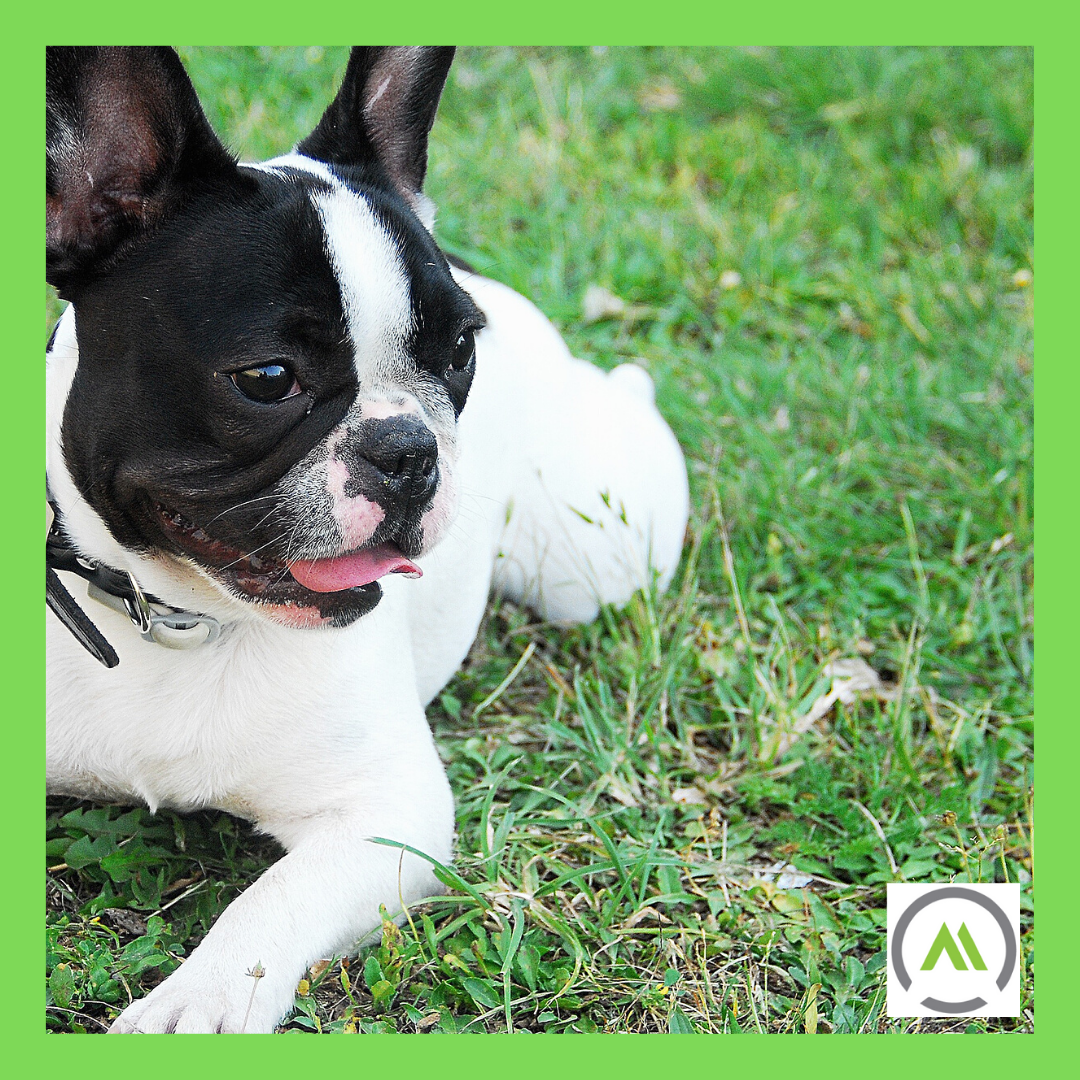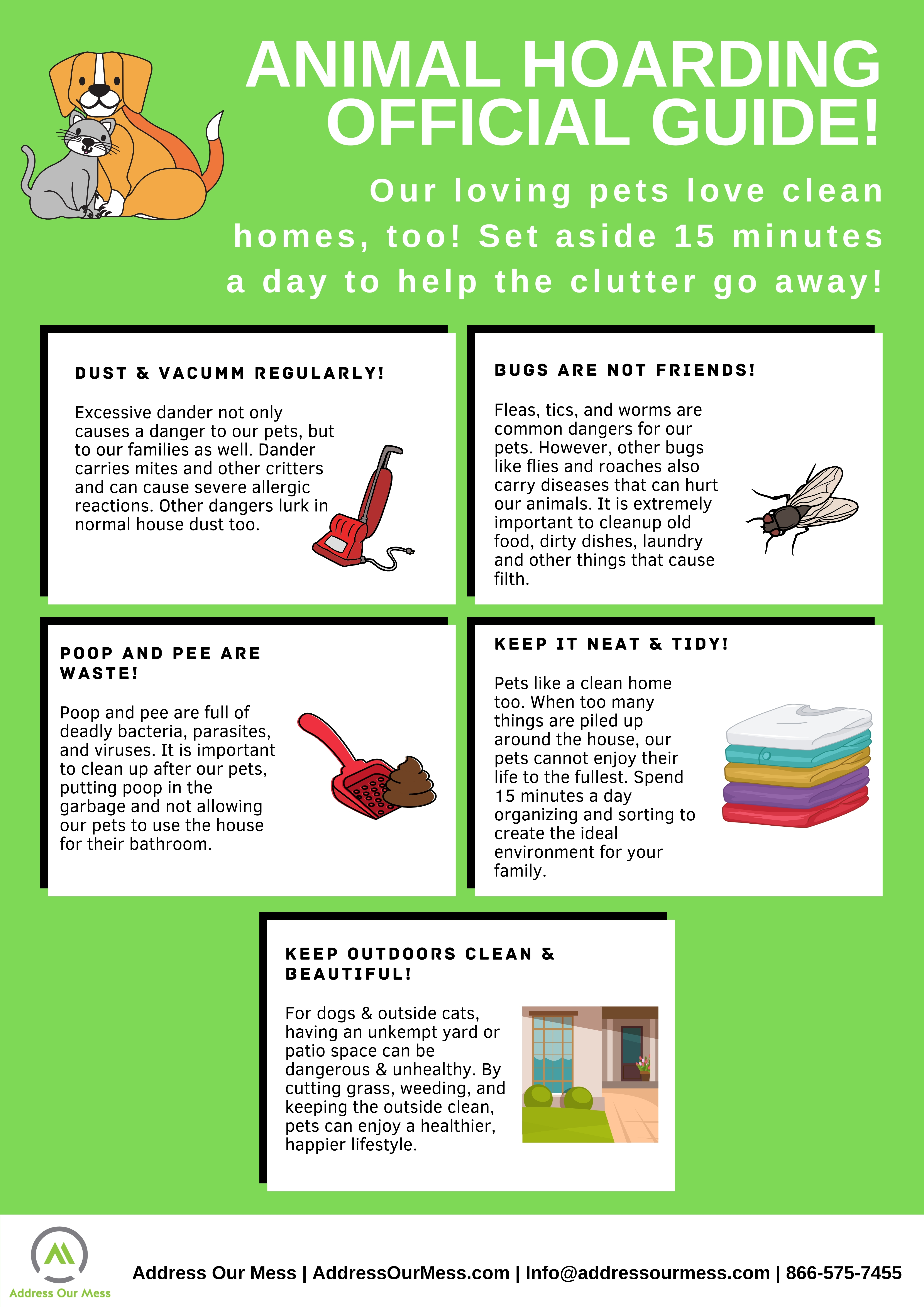 Animal Hoarding Help
Animal Hoarding Help
(Animal hoarding Guide below)
To an outsider, animal hoarding may seem like a form of neglect or even torture. Animal hoarding cases usually result in the recovery of animals who are malnourished, unkempt, or even deceased. Contrary to these findings, and according to the ASPCA, the majority of animal hoarders deeply care for their pets and genuinely believe they are doing their best to care for them properly. Animal hoarding is a danger not only to pets, but to their owners as well. Unsanitary conditions can cause severe or deadly illnesses to animals and humans alike, as well as cause a variety of other physical dangers to the property itself. Deep hoarding cleaning services are usually required to return a hoarded home with animals back to a livable, healthy state. In order to get the help animals and their owners need, here are five methods to create a successful course of action for recovery.
1. Identify the Animal Hoarding Situation (Learn to spot the signs)
Whether you yourself are an animal hoarder, you are a loved one or friend of an animal hoarder, or if you are a concerned citizen, identifying the hoarding problem is the first step. In many cases, Animal Hoarders do not invite others into their homes. Relationships are strained, friendships are lost, and social anxieties keep the hoarder isolated and alone. If a hoarder finds the courage to mention their issue with someone, it is important to capitalize on this breakthrough immediately. In some cases, though, observations must be made from afar. If neighboring houses complain of foul smells, excessive noise and sounds, or other unusual behaviors, it may be time to investigate. It is important to remember that most animal hoarders believe they are helping their pets. However, time is of the essence as these pets must be rescued to ensure their safety.
2. Build a Bond of Trust With The Hoarder
One of the first steps in the Do’s and Don’ts of Hoarding is for hoarders and their helpers to build trust between one another. No matter what your role is in the process, trusting in the other parties involved is key to a successful recovery. The health and safety of the animals and of the people living in the home are top priorities. By building trust, each member of the recovery team will be able to understand one another’s points of view and keep the best interest of the pets and owners in mind during the project.
3. Figure Out the Level of Hoarding
There are many levels of hoarding that both hoarders and their helpers must understand in order to determine the best course of action for their recovery process. Ranging from “mild” to “life-threatening,” each level of hoarding must be approached in a unique way to ensure a successful recovery.
4. Consult with Hoarder and Clutter Cleaning Professionals
Due to the dangerous nature of a house hoarded with animals, many biohazards are present which can endanger the health and well-being of those exposed to them. Along with a variety of pathogens and allergens that can sicken anyone who enters the home, concentrated levels of ammonia are usually present in animal hoarding situations. Pet urine, especially from cats, have high doses of ammonia that can prove to be lethal to those who are overly exposed to it. Hiring hoarding cleaning professionals is key for a number of reasons, as they are highly trained to handle all types of hoarding. Technicians are certified to handle biohazards such as feces, urine, vomit, blood, and other bodily fluids. Techs will enter the property with proper Personal Protective Equipment (PPE) to ensure their safety. These professionals are trained to take the proper precautions necessary to keep everyone safe.
5. Find Refuge for the Animals
The most contention animal hoarders will display during the cleanup process will be in regards to the future of their beloved animals. It is extremely important to convey the dangers their pets are subjected to in their current environment. Communicating the importance of finding these animals proper care and better homes is essential to the recover process. While animal hoarders believe they were helping their pets all along, it is wise to find them emergency care and arrange for better living situations. While some of the pets may even be able to return to the home after the deep cleaning project, chances are that the majority of them will be fostered into homes that will be able to provide the proper space, attention, and care for their development.
Animal Hoarding Official Guide!
Our loving pets love clean homes, too! Set aside 15 minutes a day to help the clutter go away!
Dust & Vacuum Regularly!
Excessive dander not only causes a danger to our pets, but to our families as well. Dander carries mites and other critters and can cause severe allergic reactions. Other dangers lurk in normal house dust too.
Bugs are Not friends!
Fleas, tics, and worms are common dangers for our pets. However, other bugs like flies and roaches also carry diseases that can hurt our animals. It is extremely important to cleanup old food, dirty dishes, laundry and other things that cause filth.
Poop and Pee are Waste!
Poop and pee are full of deadly bacteria, parasites, and viruses. It is important to clean up after our pets, putting poop in the garbage and not allowing our pets to use the house for their bathroom.
Keep it Neat & Tidy!
Pets like a clean home too. When too many things are piled up around the house, our pets cannot enjoy their life to the fullest. Spend 15 minutes a day organizing and sorting to create the ideal environment for your family.
Keep Outdoors Clean & Beautiful!
For dogs & outside cats, having an unkempt yard or patio space can be dangerous & unhealthy. By cutting grass, weeding, and keeping the outside clean, pets can enjoy a healthier, happier lifestyle.
Animal Hoarding Official Guide (Infographic)!
Call 410-589-2747, email info@addressourmess.com, or use our contact us page for more information on our animal hoarding cleanup service. We are here to help!
